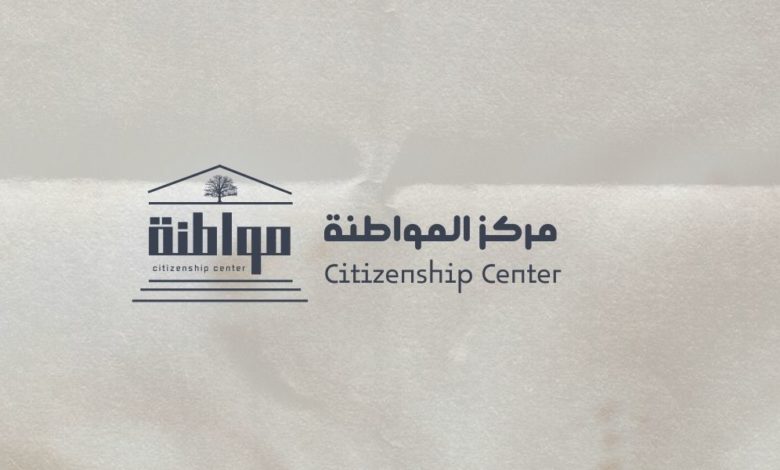The Story of the Citizenship Center

In the wake of the popular protests that swept the Arab countries in 2011, known as the “Arab Spring,” significant political and social changes occurred in the structure of the Arab political society. In this context, the results of discussion meetings held in Amman, Tunis, and Lebanon in 2015, led by a group of young activists in civil society, reached the conclusion that the transition to democracy would not be effective or genuine due to the existence of a problem and a deficiency in the understanding of citizenship and the social contract, resulting from a weakness in the political and civil culture, and a distortion in the values of dialogue and the public interest.
Therefore, the idea emerged of the need to establish a modern citizenship project, led by young men and women, aimed at rebuilding the concept of citizenship and liberating it from its traditional concept, which limits it to the bounds of loyalty and belonging, and working to transform it into a political and cultural curriculum for mature societies.
The methodology of the new citizenship project is based on raising awareness of citizenship in its political, economic, social, and digital dimensions, and it relies on training and qualifying civil actors, enhancing the capacities of civil society institutions in civil education based on citizenship, and positively influencing the formulation of public policies related to citizenship.
From this standpoint, the Citizenship Center was established in Jordan in 2016 to be a non-profit institution that seeks to consolidate the values of citizenship, democratic transformation, and the public interest in the Arab countries. The center was founded by young men and women who believe in the values of citizenship based on dialogue, cultural diversity, and pluralism, and they believe that the renewal based on citizenship in the structure of the political system protects democracy and the public interest.
The Citizenship Center consists of an organizational structure that includes an advisory council, an executive team, and a network of volunteers. The center works to implement a wide range of activities and programs aimed at enhancing the concept of citizenship and developing political and civil awareness. Among these activities are the civic education program for young people, training on active citizenship and public affairs for civil actors, organizing dialogue seminars and lectures with stakeholders, conducting studies and research, and providing consultations to institutions and individuals.
Since its establishment, the Citizenship Center has achieved several accomplishments. It has contributed to updating the official Jordanian educational curricula with the values of citizenship, qualifying teachers and educational supervisors, establishing a network of facilitators in citizenship and cultural diversity in more than one Arab country, launching awareness campaigns about human rights and political participation, and organizing events to enhance cultural understanding and dialogue between different community groups. The center has also contributed to developing educational materials and training curricula aimed at enhancing political and civil awareness among young people.
The Citizenship Center is an example of youth efforts that seek to create positive change in Arab societies. Through its focus on the values of citizenship and democratic transformation, the center aims to encourage active political and civil participation and build more transparent, fair, and progressive societies.